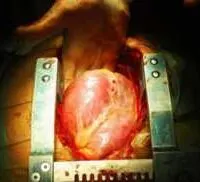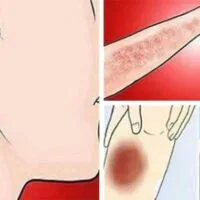When someone asks me what the most important nutrients are that they should be getting, my response is: All of them.
Fact is, your body must have the full array of nutrients to function the way it’s supposed to—nutrients are not optional.
While all of the 2,000 or so vitamins, minerals and phytonutrients are impressive in their own way, one superstar nutrient worthy of a pat on the back is vitamin D.
Let’s take a closer look at all that vitamin D does for you and why you don’t want to be without it.
Vitamin D—bones are just the beginning!
Vitamin D works with parathyroid hormone (PTH) to regulate the level of calcium in your blood and support bone health (plus it helps prevent against osteoporosis too).
But it’s also important for your teeth and oral health. Studies have shown that in men and women over 50 years of age, a lack of vitamin D is associated with increased risk of periodontal (gum) disease.
An immune boost
Vitamin D also helps regulate your immune system activity by helping to prevent excessive, inflammatory immune responses such as those seen in autoimmune conditions like Crohn’s, colitis, multiple sclerosis, lupus, Type 1 diabetes and Graves’ disease.
Type 2 diabetes
The role of vitamin D in regulating calcium goes beyond your bones and teeth.
Calcium also plays a major role in your body’s ability to regulate glucose and insulin levels, so having enough blood calcium (which depends on healthy levels of vitamin D) is important to prevent Type 2 diabetes.
In addition, vitamin D also supports proper pancreatic function to help control glucose in the bloodstream (since your pancreas produces insulin).
Our #2 killer–Cancer
Researchers have been intrigued for a long time about vitamin D’s role in preventing cancer, since studies have shown that people who live in southern latitudes (where they get more sun exposure and their bodies can make vitamin D) have lower levels of certain cancers.
Turns out they were on to something.
Vitamin D plays an important role in your cell activity—in other words, helping to regulate cell multiplication and cell death.
By definition cancer is excessive cell multiplication, along with a concurrent slowing down in cell death. That’s what allows tumors to form and take over surrounding tissues—they multiply like crazy and don’t die off.
But vitamin D’s action to encourage proper cell activity shines through here– studies have found that vitamin D acts to decrease the growth of cancer cells and to stimulate the death of those deadly cells.
Our #1 killer—Heart Disease
Several studies have been conducted linking low levels of vitamin D to an increased risk of heart disease including heart attack, peripheral artery disease, congestive heart failure and atherosclerosis.
For example, a study conducted by researchers at Harvard University found that people who had low levels of vitamin D were twice as likely to have a heart attack as those who had adequate D levels.
This is merely another example of vitamin D’s anti-inflammatory efforts in action.
Since inflammation in your arteries is a leading contributing factor to high blood pressure, arterial damage, atherosclerosis and ultimately heart disease, vitamin D’s anti-inflammatory properties can help protect against our #1 killer.
Why do so many have too little?
Unfortunately, vitamin D deficiency is extremely common, especially in the northern hemisphere where we have less exposure to sunlight and therefore our bodies can’t always make enough vitamin D.
Additionally, our increasing use of statins has contributed to our vitamin D deficiencies too.
Your body needs cholesterol to manufacture vitamin D. So if you take statins (which suppress the liver’s ability to produce cholesterol like it was designed to), that most assuredly can have an effect on your vitamin D level.
Moreover, as we get older, our skin doesn’t make as much vitamin D in response to sun exposure. At the same time, our kidneys become less efficient at converting vitamin D into the form used by the body as we age.
So now what?
Hopefully by now you’ve gotten the idea that vitamin D is not something you want to be low in.
It’s important to know where you stand, so ask your doctor to do a test to see if you are lacking.
If you are deficient, then you’ll need to consider increasing your dietary intake of vitamin D. Natural food sources of vitamin D include: shrimp, milk, cod and eggs.
And if you want to consider supplementing, look for formulas that provide both vitamin D (in the highly recommended form D3) as well as vitamin K (in the form of K2).
Just like vitamin D, vitamin K also provides bone support and helps to prevent atherosclerosis, thereby decreasing your risk of heart disease, so a formula with both D and K is ideal.
All of the 2,000 nutrients are extremely important, but vitamin D really packs a punch in terms of health benefits and protecting you against our top two killers (and many other chronic diseases).
So it’s crucial to do what you need to do to make sure you have enough of this potential life saver!



